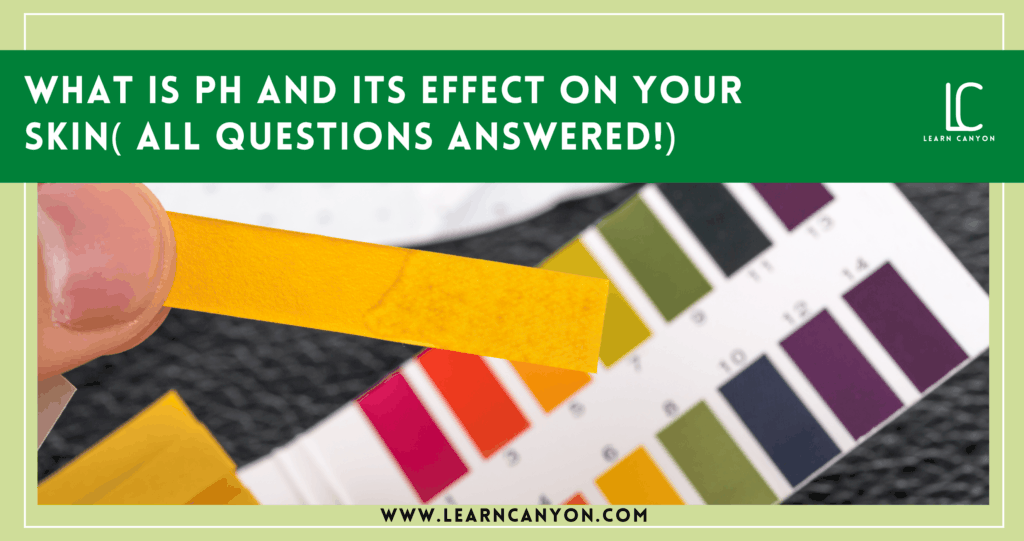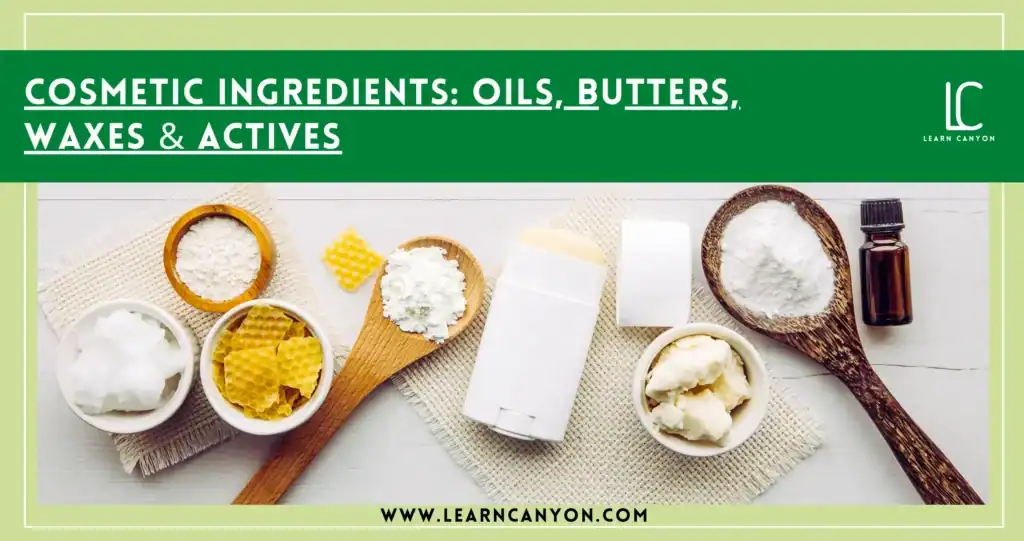Do y’all all remember the word pH being used in your high school chemistry class?
Well, we all learned about it, gave the test, and then forgot of course.
But it’s time that you recall it again because it has a major role to play in skincare.
Turns out that the pH of your skin matters a lot and you need to take it into consideration if you are into skincare.
This is a complete guide to learning what is skin pH, what is pH balance in the skin, and how to maintain that balance!
Read on!
What is pH?
For all those who cannot seem to remember exactly what is pH, here is the scientific definition: pH refers to the potential of hydrogen.
It is in regard to the activity of hydrogen ions (ions are simply molecules that carry a positive or negative charge) in a water-based solution.
Hydrogen makes up two-thirds of water, water being two hydrogen molecules plus a molecule of oxygen, H2O.
In very simple words, it is a scale ranging from 0-14.
On this scale, 7 is neutral.
Anything below 7 is acidic and anything above 7 is basic or alkaline in nature.
For example, lemon juice has a pH of 2, which is highly acidic.
On the other hand, Ammonia has a ph of 12, which is highly basic according to the scale.
Water, being at 7 is neutral- neither acidic nor basic.
Also, one important thing to note is that on this scale, the difference between one level to another level is very huge! It is not a linear scale.
So the difference between a ph level of 4 and 5 is not of one unit but a hundred times.
What does this have to do with your skin, you must be thinking?
What is pH balance in the skin?
pH has a lot to do with how your skin behaves. You will be surprised to find out that the pH balance of the skin is 5.5!
It works a bit on the acidic side. It functions the best when it is balanced on 5.5.
In fact, your skin has a protective film on its surface that’s known as its acid mantle.
The acid mantle plays an important role by working with skin-natural ingredients like cholesterol, ceramides, sweat, enzymes, and even your skin’s own oil to protect its surface and lower layers from external threats.
It also prevents infections, helps seal in moisture, and keeps skin firm.
This is because the natural acidic nature of the skin makes it difficult for the harmful bacteria and pathogens to multiply but lets the great stuff grow!
With growing age, this acid mantle diminishes, leaving the skin wrinkly and dry.
It is important to look after the pH balance of skin from your younger years so this shield is not broken!
So, now you understand that the term ‘pH balanced’ is more than a USP of a skincare product, rather an important point to consider! Now you know what is pH and what is pH balance in skin,
Let’s study a little more about it!
How pH level affects the skin?
You know that dry and tight feeling in your hands just after you have done the dishes or laundry?
That is because the pH balance of the skin is disturbed due to the highly basic soap bar or the liquid soap you use.
This is just one of the many ways in which everyday products affect the pH balance of your skin.
As we mentioned earlier, anything over seven is considered alkaline. Skin that falls on this end of the scale tends to be drier and more wrinkly.
While it is good for your skin to be on the acidic side, skin that’s too acidic can appear red, irritated, and itchy.
5.5 is just banged on!
Even different parts of your body can have different pH levels.
Your private parts, for example, maintain their own pH level, and hence it’s advised not to use any soap or douche for cleaning. This disrupts the natural process.
Some factors that can affect skin pH include:
- Detergents
- Acne
- Pollution or the level of humidity in the air
- Antibacterial products
- Soaps and handwashes
- Sweat
- Sebum or the natural oil produced by the skin
- Cosmetics
- Too much exposure to the sun
- Tap water/ Hard water
- Change in seasons
Download our E-book: 100 Formulas “For Your Cosmetics” where we have in-depth content about 100 different formulations that you can use for your cosmetics business.
How high pH affects the skin?
Anything above the recommended 5.5 is considered basic or alkaline for the skin that we have established. To explain, we’ll give you another example.
Remember that squeaky clean and tight feeling that you get sometimes when you wash your face or hands?
It makes you feel as if the product has been deeply cleaned?
That is one of the first and the truest signs that the product is alkaline and has ripped your skin off the natural oils.
As a result, undesirable effects such as inflammation, scaling, redness, and dryness can occur. Your skin might even break out.
How low pH affects the skin
So most of the time, products with low pH will work well with your skin because that is its natural environment.
However, when the pH is too low, that can cause harm. Some products with traces of orange extract, lemon extract, or ‘amla’ extract can seem to exfoliate your skin well, but in the long run, may have side effects.
A moisturizer is always recommended in these cases to restore the barrier.
How would you know if your skin pH balance is off?
Till now you have learned what is skin pH and what is pH balance in skin.
But how will you know when your skin pH balance is off?
There are two basic ways to do that!
- Visit a dermatologist: if you think something is off with your skin, visit a dermatologist instead of waiting around and trying home remedies. The doctor can tell you accurately if the pH balance of the skin is off or is it something else.
- Check at home: if you currently cannot visit a doctor, look for signs such as redness, inflammation, itch. These can be signs that your skin’s barrier is off and it is more towards the alkaline side.
Using natural ingredients for washing your face and bathing is the best way to avoid any disruption in the skin’s pH balance.
And you know what is even better? Formulating your own organic skincare products!
We are providing an Organic Skincare Course that will help you in this.
This is a course designed by professionals so that you can convert your interest and passion for skincare into a business someday!
So go ahead, discover the art and science of organic skincare!











